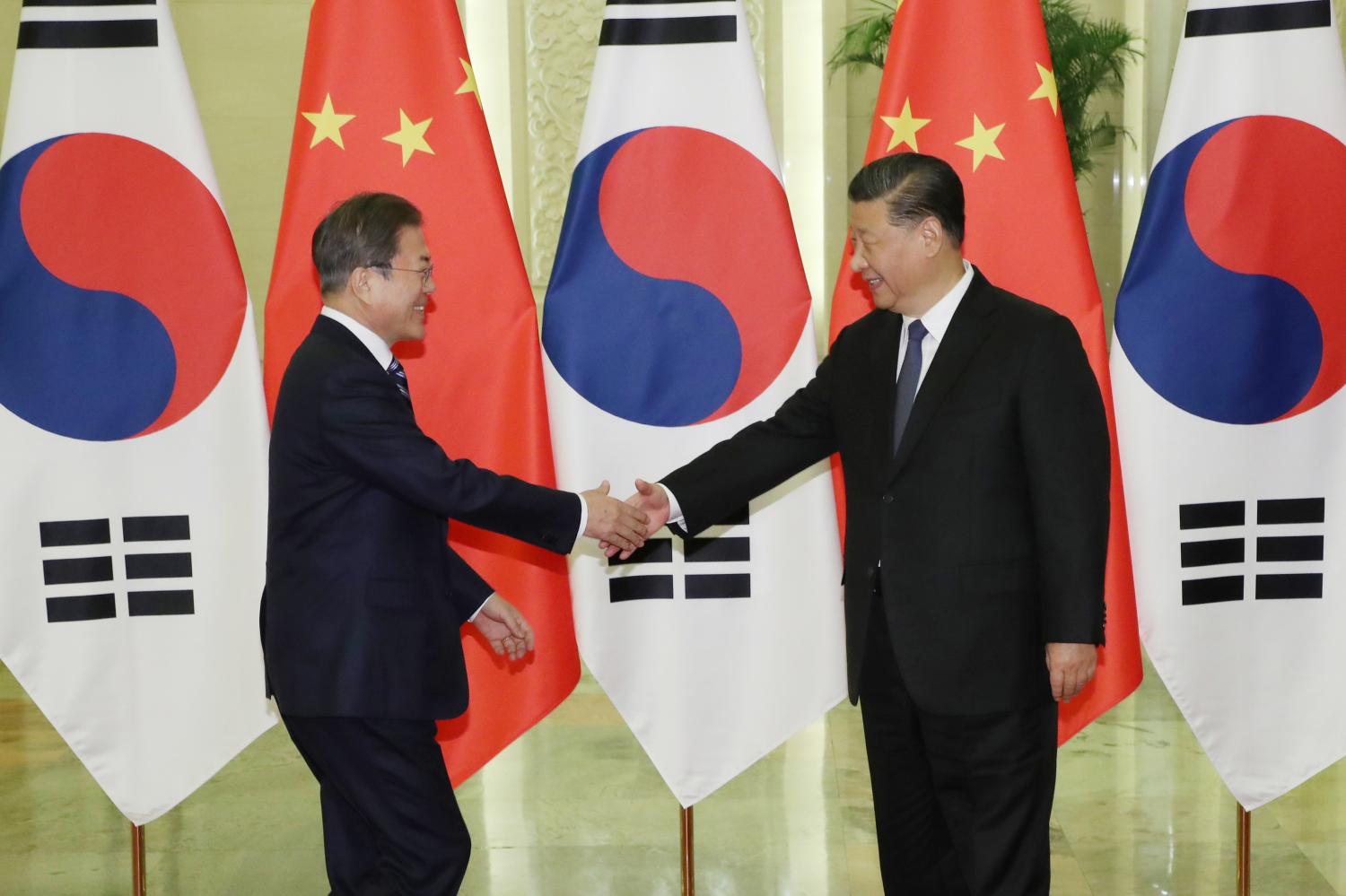This piece was originally published by the East Asia Institute (EAI) as part of a project with the Center for East Asia Policy Studies (CEAP) at Brookings examining prospects for U.S.-South Korea cooperation in an era of U.S.-China strategic competition. A webinar was hosted by CEAP and EAI on November 13, 2020 to discuss the issues presented in this and other project working papers.
Executive Summary
China is seeking to weave engagement with North and South Korea to try to increase its influence over the Korean Peninsula, including on the North Korean nuclear issue, and weaken the perception of Washington’s relevance in the region as it seeks to establish its regional dominance. Chinese president Xi Jinping almost certainly sees opportunities to make progress on those goals, given the stalemate in U.S.-North Korea nuclear talks and the significant fissures that have opened in U.S.-South Korea ties under the Trump and Moon administrations.
As U.S.-China relations continue to worsen, dampening Beijing’s appetite for cooperation on key security issues like North Korean denuclearization, Xi’s assertiveness in pursuing China’s priorities on the Korean Peninsula has the potential to embolden, not rein in, Kim Jong Un, reduce Washington’s role and influence in Northeast Asia, and coerce Seoul to accommodate Beijing’s policy goals or risk punishment. Moreover, China’s heft in influencing the security dynamics on the Korean Peninsula has grown, as a result of its rapprochement with North Korea since 2018, a convergence of interests among Beijing, Pyongyang, and Seoul, the necessity of its compliance in making sanctions work, and the Trump administration’s haphazard approach that has weakened alliances and eroded U.S. credibility in the region.
The Brookings Institution is committed to quality, independence, and impact.
We are supported by a diverse array of funders. In line with our values and policies, each Brookings publication represents the sole views of its author(s).




